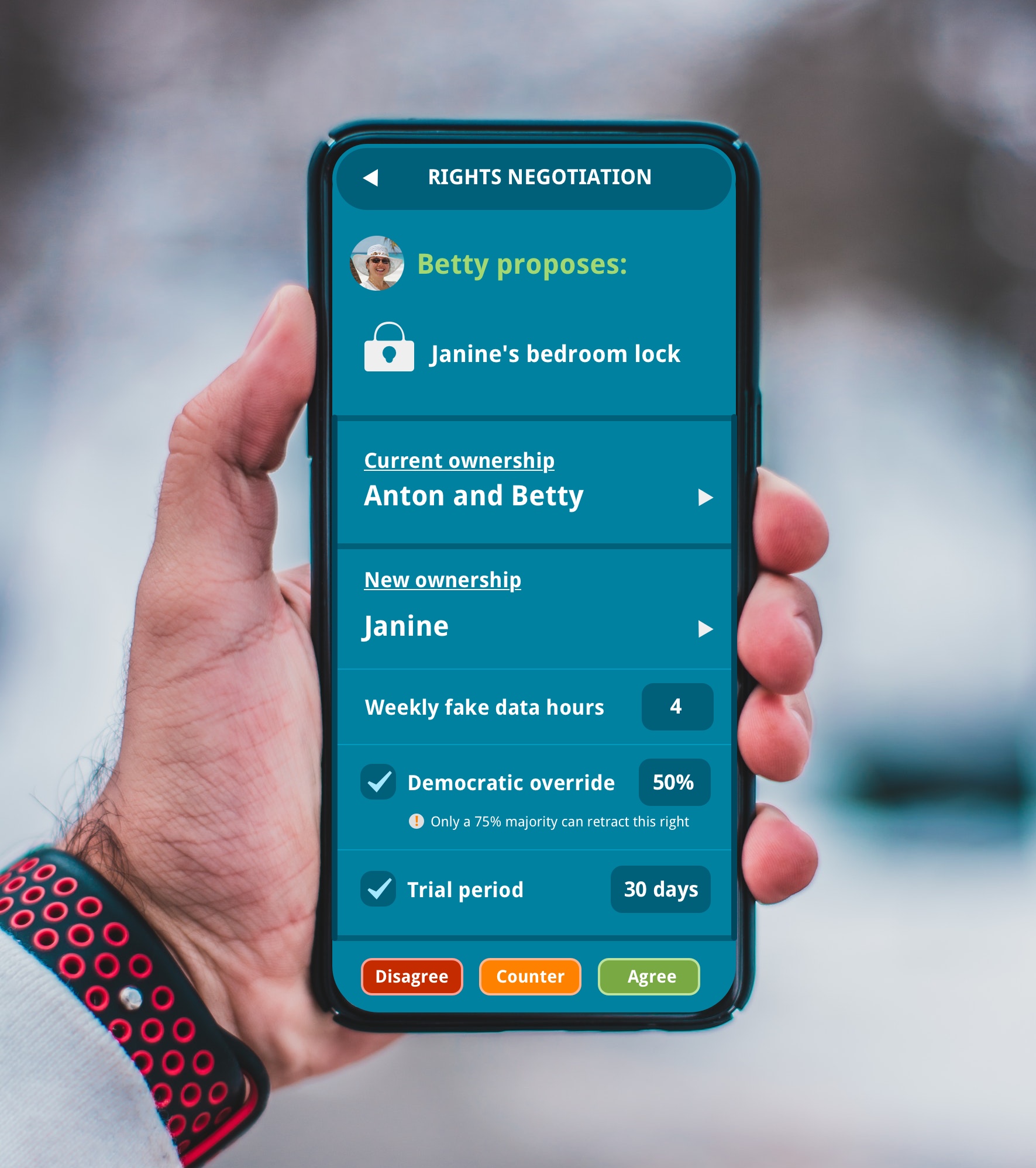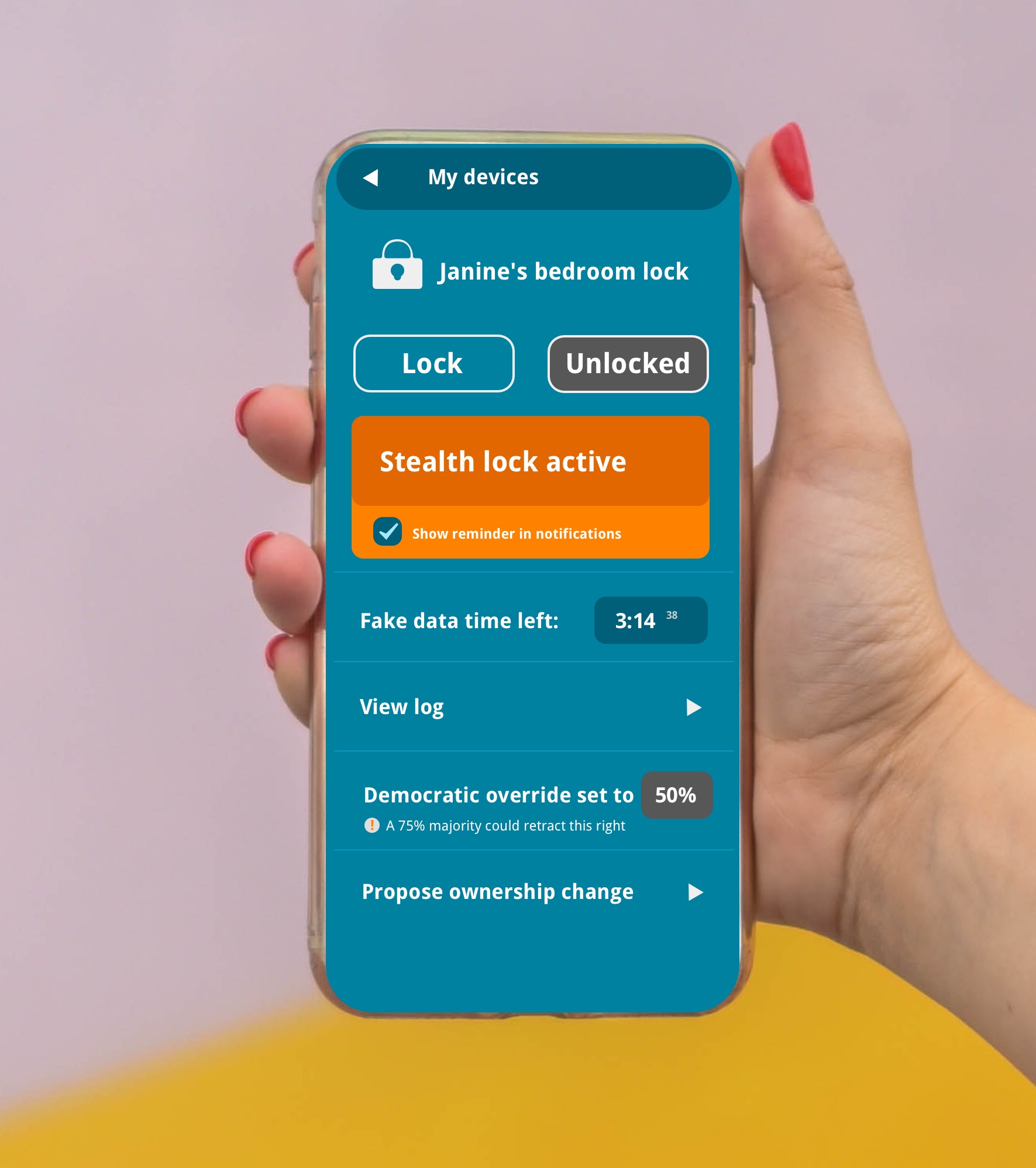Healthy social dynamics
Smart homes can put stress on family life
Smart devices can be spies and snitches
Research points out that smart homes can create painful social situations. A spouse may be tempted to spy on their partner. Children may grow up over-protected, and with the feeling of living in a prison where their every move is measured.
Through value sensitive design we could avoid these issues.
1. Democracy at home
A family is not a company
Currently, most smart home systems use a hierarchical user model. Usually there is an 'administrator', a person that has access to all the data in the home, who can create very basic 'users'.
This power structure can feel authoritarian.
Let's imagine how families could negotiate control over smart devices:

Janine has just turned 13. After a negotiation at the kitchen table it has been decided she should become the 'owner' of the air quality and security sensors in her bedroom, as well as its smart lock.
Together, her parents transfer ownership of the smart lock on her bedroom door to her.
This means in normal situations her parents are no longer able to override the lock. This gives Janine a lot more privacy.
Janine also gains the right to fake data. In the case of the smart lock, this means she can pretend the door is locked when it isn't, or vice versa. This allows her to have intimate moments without signalling it to the system.

Similarly to human rights, some rights can not be revoked once given. Others can be overriden or even revoked if a pre-defined majority of the household agrees.
2. Allow smart devices to lie
"Janine, what time did you get home last night?"
We all tell 'little white lies' throughout the day, often to protect or unburden our loved ones. Being naughty is part of being human.
Most smart devices, however, are designed to always tell the truth. This can lead to painful or embarrassing situations.
Let's imagine how smart devices could help us embellish or protect our identity.

Janine has turned 16 and, like most girls her age, masturbates.
Her 'fake data allowance' allows her to set her bedroom door to 'stealth lock'.
This means her bedroom door is locked, but this change will not be logged by the smart home system. Her parents and her brother's app would show the door as still being unlocked.
This allowance also lets Janine keep the lights turned on after bed time without her parents knowing. It lets her smoke a cigarette with friends without the dust sensor logging it. As her allowance increases, she could use it all to secretly give a house party while her parents are away on holiday.
It allows Janine to be a normal teenager.

“Our homes are not companies, and our lives are not science experiments. We should always keep in mind that humans are complex, imperfect beings who like to pretend they are not.”